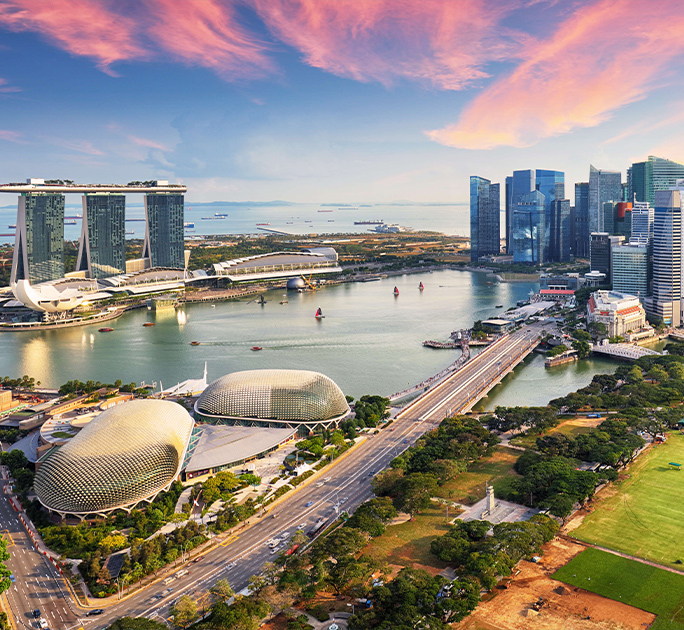Bangladesh Market Profile
Corporate Treasury & Cash Management in Bangladesh
Bangladesh Market Profile
Corporate Treasury & Cash Management in Bangladesh
About Bangladesh
Bangladesh’s economy is largely driven by exports and has averaged close to 6% growth per annum since the early 2000s, even through the COVID-19 pandemic. Very few countries in the same tier (the World Bank now classifies it as a lower-middle-income economy) have sustained this level of growth.
The rising industrial sector is led by the garment industry, which accounts for more than 80% of total export earnings, according to The Bangladesh Garment Manufacturers and Exporters Association. Numerous multinational garment companies use the country as a manufacturing base. Bangladesh also has a developing services sector, which now accounts for more than half of its gross national product (GDP).
The country has a young, well-educated workforce, and English is widely spoken as a second language. Wages are among the lowest in the region, making goods and services economical. Its geographical location between India and China makes it well-placed to access these markets as well as the countries of the Association of Southeast Asian Nations (ASEAN).
The government has introduced a series of economic reforms to encourage foreign direct investment and has established nearly 100 economic zones. Bangladesh allows 100% foreign ownership in all but a few restricted industries. Additionally, it allows remittance of profits, subject to approval from Bangladesh Bank, the country’s central bank.
Corporate Treasury in Bangladesh
Bangladesh is a fast-growing, emerging economy. In this section, we highlight some of the key factors relevant to treasury and cash management in Bangladesh.
Financial Market Development
- Dhaka is Bangladesh’s financial centre.
- Bangladesh has foreign exchange (FX) controls in place, which are overseen by the central bank. Prior approval from Bangladesh Bank is required for the remittance of funds from certain transactions. Branches of foreign firms can repatriate post-tax profits without prior approval, but they may only do so through banks that are authorised to deal in foreign exchange.
- The Bangladesh taka (BDT) has been convertible since 1994.
Sophistication of Banking Systems
- There are more than 60 scheduled banks and five non-scheduled banks in Bangladesh, including six state-owned commercial banks and 43 private commercial banks, of which 10 are Shariah banks and nine are branches of foreign commercial banks.
- Bangladesh’s bond market is dominated by government issues. Efforts are underway to encourage more corporate bond listings.
- Bangladesh is a member of the Asian Clearing Union.
Regulatory Bodies
- The banking system in Bangladesh is regulated by Bangladesh Bank, which is also the central bank. Regulations are in line with Basel III. Prior approval of Bangladesh Bank is required for some foreign exchange transactions.
Tax
- The corporate income tax rate is 25% for publicly traded companies and 32.5% for other companies. Banks, insurance companies and financial institutions are taxed at 40%, reduced to 37.5% if they are publicly traded. Mobile phone operators and cigarette manufacturing companies are taxed at 45%.
- A minimum tax of 0.6% on gross receipts from all sources of income is charged to companies (other than mobile phone operators, and manufacturers of cigarettes and other tobacco products) or firms that have gross receipts above BDT5 million, regardless of profit or loss, if the minimum tax is higher than the corporate tax liability.
- Dividends received from resident companies are generally taxed at 20%.
- Resident companies are taxed on worldwide income. Foreign companies are taxed on income that is received or generated in Bangladesh.
- A branch remittance tax of 20% is charged on the remittance of profits to the head office by the branch of a foreign company.
- The standard rate for Value Added Tax (VAT) is 15%; certain categories of goods and services are exempted, zero rated or have lower rates.
- Capital gains are taxed at 15%, although there are some exceptions.
- Interest expenses that are used for business purposes are generally tax deductible. There are no thin capitalisation rules in Bangladesh.
- Stamp duty is charged on financial instruments, property and other transactions.
- Withholding tax of 20% is charged on interest paid or payable to non-resident companies where no tax treaty is in place. Rates range from 5% to 15% where a tax treaty is in place and the non-resident can provide a Certificate of Residence.
- Tax incentives are in place for certain sectors, such as information technology (IT), and for industrial companies operating in specific regions.
- Bangladesh has tax treaties with more than 30 countries and territories.
Benefits for Local Treasury
- Bangladesh has a pro-business government that allows 100% foreign ownership in all but a few industries
- Bangladesh's geographic location offers easy access to India, China and ASEAN markets
- Bangladesh is a low-cost country to operate in, with an educated English-speaking workforce.






